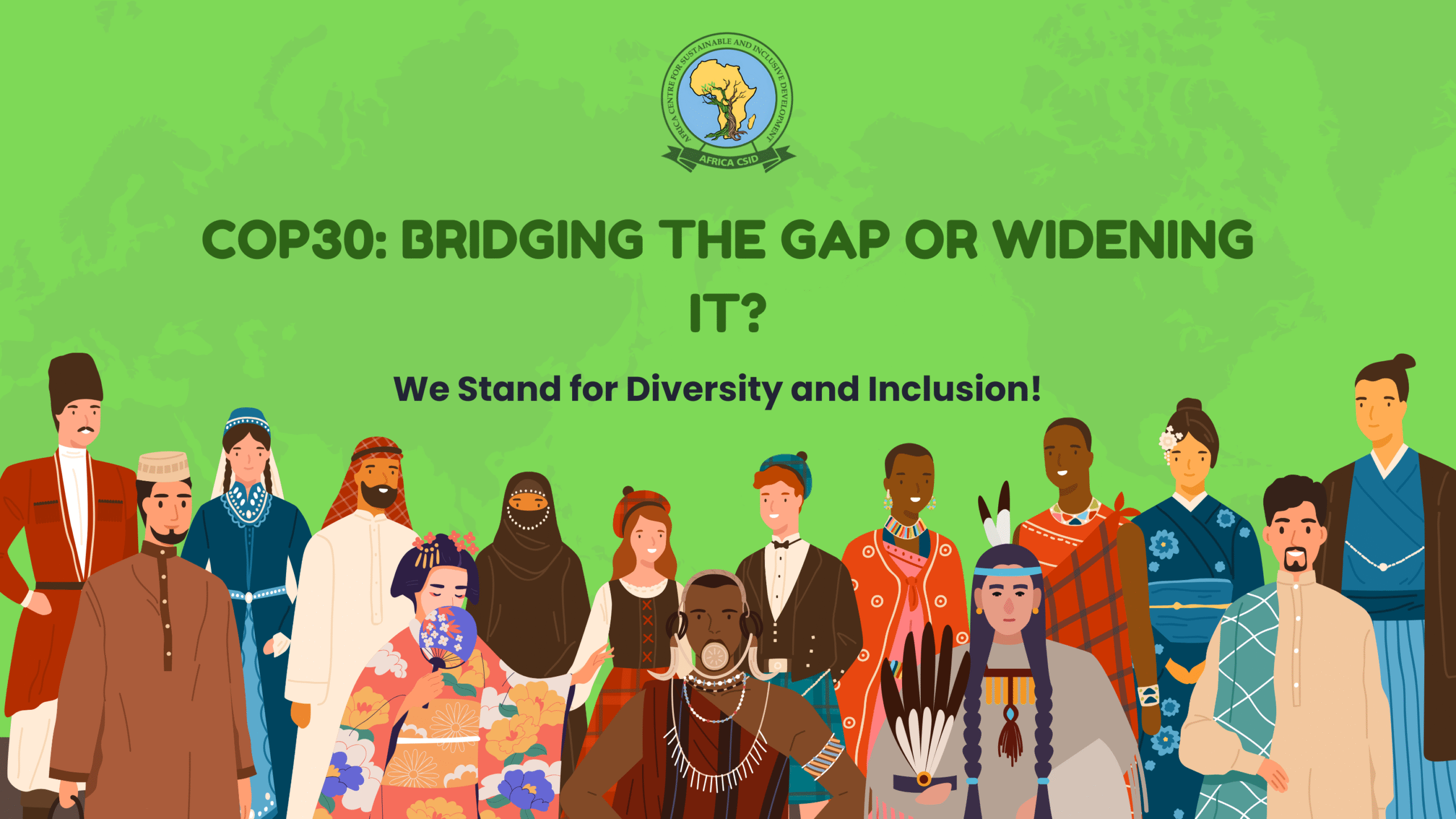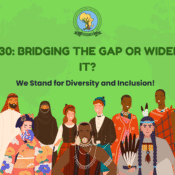
Bridging the Gap or Widening It? COP30 and the Fight for Inclusion
COP30 comes at a critical time when there is a need for bold, collective action that will inspire change for many communities in the global South. With 2025 marking 10 years of the Paris Agreement, COP30 offers a chance for us to reflect on how far we have come, and what the next decade should look like in the fight against the Climate crisis.
The Brazilian presidency designated COP30 as ‘The Implementation COP’, designed to bridge the gap between negotiations and action by bringing together Civil Society, the private sector, governments, frontline communities, and activists to translate agreements into real-world actions and results; an achievable ambition when all players work together.
Yet, the recent complaints of exclusion of frontline groups and communities by the COP30 organising committees raise critical questions about whose voices are truly being centred in this pivotal moment. Frontline communities hold invaluable knowledge, lived experience, and solutions rooted in their resilience. Their exclusion not only undermines the legitimacy of COP30’s ambition but risks repeating patterns of top-down decision-making that failed to deliver transformative change over the years.
When frontline voices are missing in decision-making rooms, climate negotiations suffer. We lose the perspectives that make climate action just and effective. Reducing frontline communities’ access not only reduces numbers, but we also lose diversity.
Many key decisions like Indigenous land rights, Fossil fuel phase-out and Loss and Damage funding have flopped at recent COPs because the communities and groups advocating for them are often left out of decision-making, which in the end stall progress.
We appreciate COP30 positioning itself as an ‘Implementation COP’ but that promise needs to be met by action. Implementation requires inclusion, which for us in the global south means deliberate actions to remove the barriers, such as high cost of accommodation and travel, that are prohibitively expensive for many activists and local community leaders. There are also security concerns as well as many local leaders have to seek accommodation miles away from the COP30 venue.
I mean, the presidency had more than 2 years to sort these issues, and what it looks like right now is a betrayal of the frontline communities it claimed to spotlight.
Many are already threatening to boycott Belem, and if this becomes so, then an empty COP would be, in addition to a historic embarrassment for Brazil, a precious lost opportunity for humanity to keep the climate agreement’s temperature goal alive.

